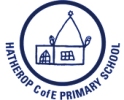Starting School
Before your child starts school
We all want to do our best to enable your child to settle into school as smoothly as possible, and we organise a range of activities to achieve this.
Once you have received a letter offering your child a place, we hold a meeting for parents in school (usually in May) to get to know you and find out about your child. Then we have the following:

Afternoons in school in June
We would like you to bring your child to school on this occasion, so that they can meet the other children in the class and the teacher and teaching assistant. We host four Activity Afternoons in June to continue this process.
When it gets nearer to September, here are some ideas to help get your child ready for school:
Pre-school learning
Maths
You can help by showing your child that maths is everywhere. Ask questions such as : Have we got enough? How long is that? Is this bigger or smaller?
Reading
- Choose books together
- Make reading a special time
- Choose information books as well as stories
- Look at the pictures together
- Talk about the book
- Be seen reading yourself – otherwise what is reading for?!
Writing
Please do not try to teach your child their A (ay) B (bee) C (see) before starting school as we use the phonetic alphabet in the early stages. If you need to talk about a letter, please use the letter sound i.e. the sound ‘a’ as in apple, ‘b’ as in ball, ‘c’ as in cap, etc. If your child shows interest in learning to write their name, please use a capital letter followed by lower case letters (not all block capitals) and make sure the letters are formed correctly.
By far the most important way to prepare your child for school is to give them practical independence. It is a great confidence-builder for your child if they can do the following things:
- Dress and undress
- Remove outdoor clothes and hang them up
- Tie shoelaces (if possible)
- Use the toilet properly and flush the toilet after use
- Wash and dry hands
- Use a knife and fork
- Tidy and clear away toys
- Use a handkerchief/tissue efficiently
- Share toys and be prepared to take turns
The First Day
On the first morning, try to allow plenty of time so that you do not have to rush your child to get dressed, and also to have time for a drink and some breakfast.
Sometimes children appear tearful when leaving you in the morning, but will be perfectly happy within minutes once they see the interesting activities that await them.
Starting school can be exhausting – emotionally, physically, socially and mentally – so do not be surprised if your child comes home feeling tired. A meal, a bath, a cuddle and a story before getting them to bed early will be a great help.
Most children settle into school quickly and happily, but if there are any problems, or you are worried about anything, please ask. Things are usually, easily sorted out, particularly if dealt with in good time. If a problem persists, we will, of course, work with you to sort it out.
One last thing: please try not to compare children. They all develop at different rates and you can be sure that if you talk to, and encourage, your child by listening to them, they will make the most of their opportunities in school.

